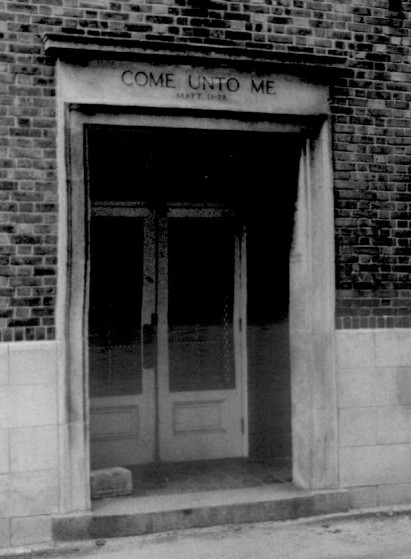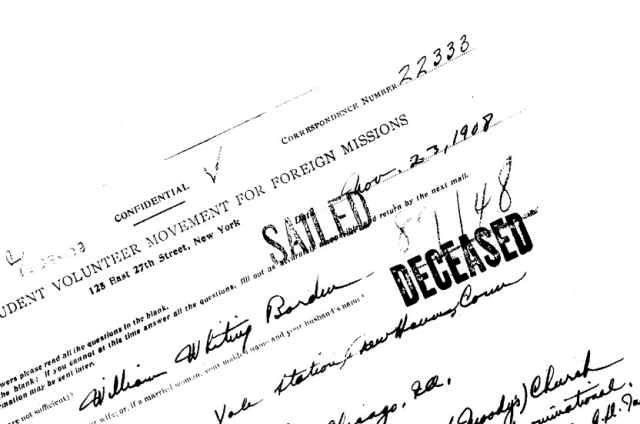Borden of Yale
William Whiting Borden, Class of 1909, 1887 – 1913
Millionaire Bill Borden arrived at Yale like any other freshman. But soon his classmates noticed something unusual about him: “He came to college far ahead, spiritually, of any of us. He had already given his heart in full surrender to Christ—had really done it. We who were his classmates learned to lean on him and find in him a strength that was solid as a rock, just because of this settled purpose and consecration.”
Bill’s first disappointment was hearing the president of Yale speak on “having a fixed purpose.” Bill wrote later, “He neglected to say what our purpose should be, and where we should get the ability to persevere and the strength to resist temptations.” He saw the result of this empty philosophy all around him at Yale—moral weakness and sin-ruined lives.
During his first semester at Yale, Bill started the movement that transformed the campus. His friend wrote: “It was well on in the first term when Bill and I began to pray together in the morning before breakfast. I cannot say positively whose suggestion it was, but I feel sure it must have originated with Bill. We had been meeting only a short time when a third student joined us and soon after a fourth. The time was spent in prayer after a brief reading of Scripture. Bill’s handling of Scripture was helpful…he would read to us from the Bible, show us something that God had promised and then proceed to claim the promise with assurance.”
During his first semester at Yale, Bill started the movement that transformed the campus.
Borden’s group was the beginning of the daily groups for prayer that spread to every one of the college classes. By the end of Bill’s first year, 150 freshmen had become interested in meeting for weekly Bible studies. By the time he was a senior, 1,000 out of the 1,300 students at Yale were meeting in groups like these.
Bill made it his habit to choose the most “incorrigible” students and bring them to salvation. “In his sophomore year we organized Bible study groups and divided up the class of three hundred or more, each man interested taking a certain number, so that all might, if possible, be reached. The names were gone over one by one, and the question asked, ‘Who will take this person or that?’ When it came to one who has a hard proposition there would be an ominous pause. Then Bill’s voice would be heard: ‘Put him down to me.’”
Bill Borden did not confine his work to Yale. He rescued drunks on the streets of New Haven and founded the Yale Hope Mission to rehabilitate them. “He might often be found in the lower parts of the city at night—on the street, in a cheap lodging house or some restaurant to which he had taken a poor hungry fellow to feed him—seeking to lead men to Christ.”

Borden had already formed his purpose to become a missionary to the Moslems in China, and that purpose never wavered. He inspired his classmates to do likewise: “He certainly was one of the strongest characters I have ever known, and he put backbone into the rest of us at college. There was real iron in him, and I always felt he was of the stuff martyrs were made of, and heroic missionaries of more modern times.”
Although he was a millionaire, Bill “seemed to realize always that he must be about his Father’s business, and not wasting time in the pursuit of amusement.” Although he refused to join a fraternity, “he had more influence with his classmates in his senior year than ever before.” He presided over the huge Student Missionary Conference held at Yale and was elected president of Phi Beta Kappa.
After graduating from Yale, Bill began several years of missionary training. But in Egypt, where he was studying Arabic, he died of cerebral meningitis at the age of 25. “When the death of William Whiting Borden was cabled from Egypt, it seemed as though a wave of sorrow went round the world…. Borden not only gave his wealth, but himself, in a way so joyous and natural that it was manifestly a privilege rather than a sacrifice.”
[Quotations taken from Borden of Yale, by Mrs. Howard Taylor, Moody Press, Chicago.]
Read also Bill Borden: Challenge of a Consecrated Life.


